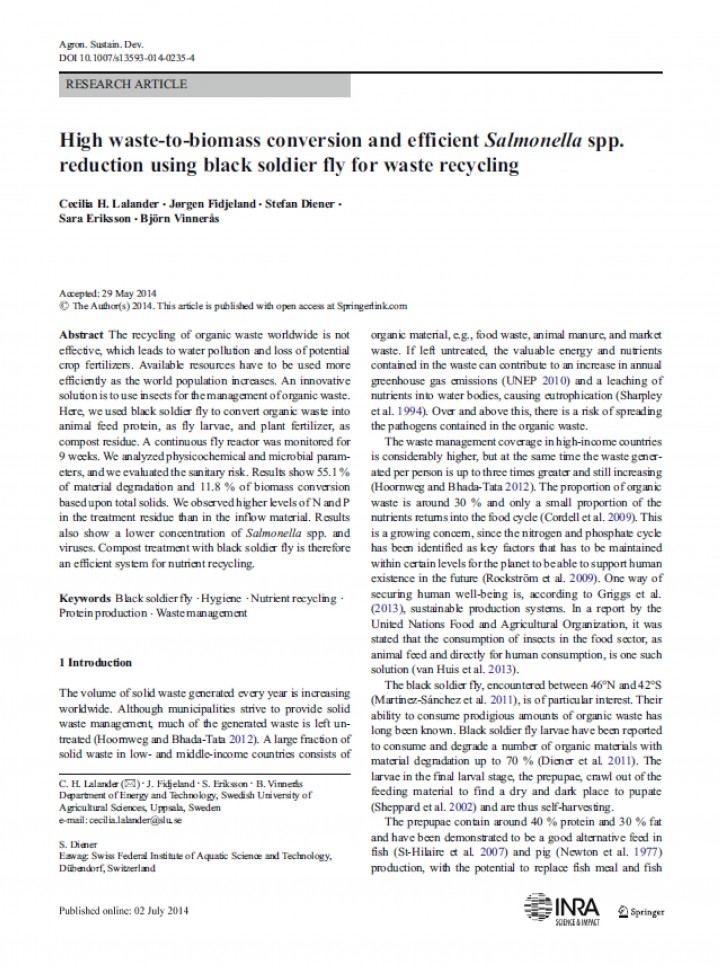High waste-to-biomass conversion and efficient Salmonella spp. reduction using black soldier fly for waste recycling Lalander, C. H., Fidjeland, J., Diener, S., Eriksson, S., Vinneras, B. (2014)
The recycling of organic waste worldwide is not effective, which leads to water pollution and loss of potential crop fertilizers. Available resources have to be used more efficiently as the world population increases. An innovative solution is to use insects for the management of organic waste. Here, we used black soldier fly to convert organic waste into animal feed protein, as fly larvae, and plant fertilizer, as compost residue.
A continuous fly reactor was monitored for 9 weeks. Physicochemical and microbial parameters were analyzed, and the sanitary risk was evaluated. Results show 55.1% of material degradation and 11.8 % of biomass conversion based upon total solids. Higher levels of N and P in the treatment residue than in the inflow material were observed. Results also show a lower concentration of Salmonella spp. and viruses. Compost treatment with black soldier fly is therefore an efficient system for nutrient recycling.
Bibliographic information
Lalander, C. H., Fidjeland, J., Diener, S., Eriksson, S., Vinneras, B. (2014). High waste-to-biomass conversion and efficient Salmonella spp. reduction using black soldier fly for waste recycling Agronomy for Sustainable Development Vol. 35, Is. 1, pp. 261-271
Filter / Tags
EnglishProtein for animal food
External links
Downloads
High waste-to-biomass conversion and efficient Salmonella spp. reduction using black soldier fly for waste recycling
Type: application/pdf
Size: 3.09 MB

